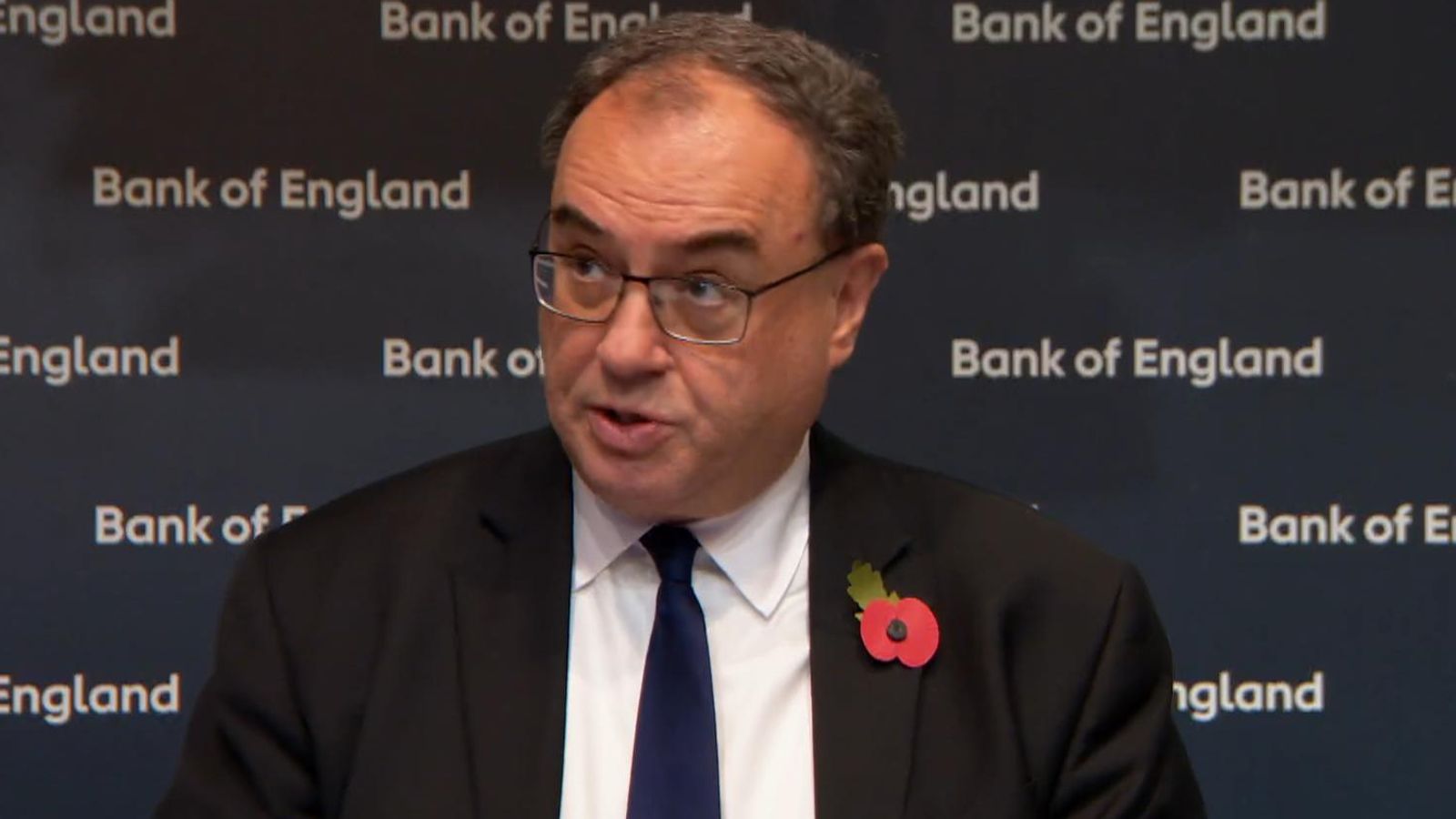[ad_1]

The governor of the Bank of England has warned of “apocalyptic” food prices, as he said there is nothing the Bank could have done to prevent soaring inflation.
Andrew Bailey hit back at criticism that the Bank acted too slowly to tackle inflation, blaming a “bad situation” on the impact of the war in Ukraine and COVID-19.
“There have been a series of supply shocks and most recently with the impact of the war, Russia’s invasion of Ukraine,” he said.
“We can’t predict things like wars – that’s not in anybody’s power.
“I don’t think we could have done anything differently; we could not have seen a war with Ukraine.
“There is also a further leg of COVID, with the situation in China, which appears to be affecting the country more seriously.”
He said the war in Ukraine has pushed up energy prices, which are the biggest driver of inflation – while the lockdown in Shanghai has exacerbated increases in the cost of goods due to its effect on supply chains.
The consumer price index (CPI) measure of inflation hit 7% in March and is expected to pass 10% later this year.
He said the Bank also underestimated the number of people who would leave the labour market after the threat of the pandemic receded, which is resulting in lower unemployment.
Michael Saunders, from the Bank of England’s Monetary Policy Committee (MPC), added that “there is no sensible monetary policy that could have held inflation at 2% this year”.
Food prices a ‘major worry’
Mr Bailey said growing food prices were a “major worry” for the central bank as Ukraine struggles to get wheat and cooking oil supplies out of the country.
“Ukraine and Russia is the big risk in a way,” he said.
“One is the risk of a further energy price shock, which would come from the cutting off of gas and distillates, such as products like diesel.
“And then, the one which I might sound rather apocalyptic about, is food.
“Two things the finance minister said is that there is food in store, but they can’t get it out.
“While he was optimistic about crop planting, as a major supplier of wheat and cooking oil, he said we have no way of shipping it out and that is getting worse.”
Mr Bailey also warned that unemployment is set to increase as inflation bites.
“The main driver of inflation and what brings it down is the very big, real income shock which is coming from outside forces and, particularly, energy prices and global goods prices,” he told MPs.
“That will have an impact on domestic demand, and it will dampen activity, and I’m afraid it looks like it will increase unemployment.”
He said the Bank of England is facing its biggest challenge to its monetary policy framework in 25 years.
[ad_2]








